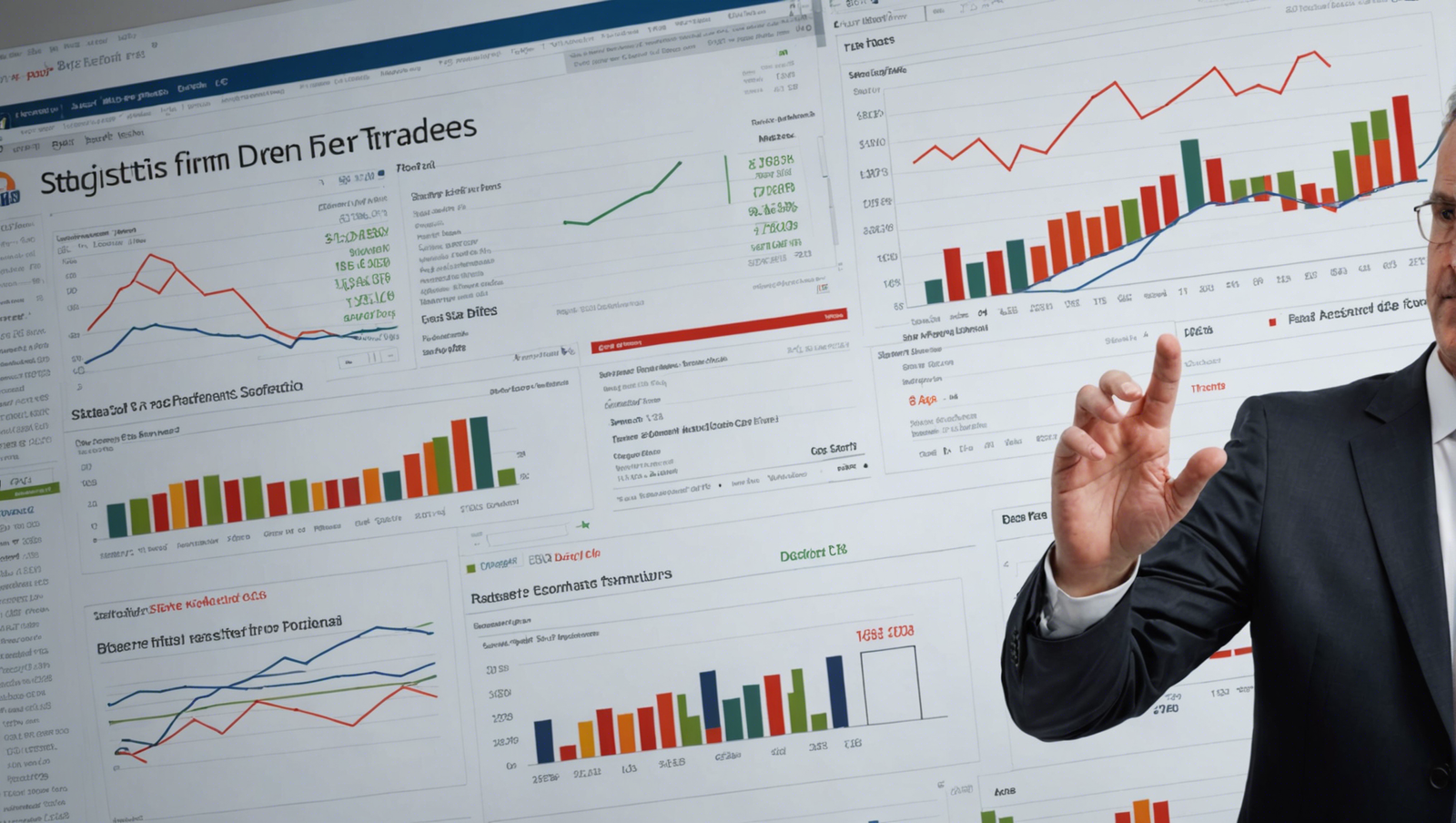In the hectic world of trading, success is not just about luck, but also about how one prepares and aligns with industry best practices. Explore a wealth of eye-opening statistics about Proprietary Trading Firm traders in this article and discover how these selective organizations offer a challenging and rewarding path to success in the financial markets.
Understanding how Prop Firms work

Understanding the Basics of Prop Trading
THE Prop Trading, in other words proprietary trading, is a common practice in finance. It simply involves a company, most often an investment bank or a dedicated entity such as a Prop Firm, speculating on the financial markets with its own money, and not that of its clients, with the aim of achieving a profit.
The question that now arises is: how do these entities known as Prop Firms, and how can traders benefit from it?
The particularities of Prop Firms
Unlike investment banks and other traditional financial institutions, Prop Firms are entities dedicated 100% to prop trading. In other words, they only invest their own capital in the financial markets. One of the main objectives of Prop Firms is to seek out and train talented traders who will be able to generate significant profits through their trading operations.
Recruitment into Prop Firms is often very selective and new members are generally subject to an initial assessment period during which they must demonstrate their skills. This mechanism allows these firms to minimize the risks associated with trading and maximize the return on their capital.
The daily operation of a Prop Firm
Once recruited and trained, traders generally work as a team within the Prop Firm, working together to identify the best trading opportunities in the markets. Traders often have the opportunity to access additional training resources, as well as technical and strategic support from colleagues and firm management.
Prop Firms make money from the profits made by their traders. The latter are generally remunerated through a commission on their winnings, thus offering them a powerful incentive to perform at their best on the markets.
[Cafedu Trading]In summary, the operation of Prop Firms is based on a balance between finding and training talented traders, managing risk and maximizing profits. If this approach seems exciting to you, do not hesitate to explore the world of Prop Firms further, in particular by consulting the resources available on sites such as (https://www.cafedutrading.com/trading/prop-firm) and ( https://www.benzinga.com/money/best-prop-trading-firms) to better understand the nuances and operation of these entities. [Benzinga]
To remember :
- Prop Firms are dedicated to prop trading: they invest their own capital in the financial markets.
- They recruit and train talented traders, reducing risks and maximizing the return on their capital.
- Traders work as a team to identify the best opportunities and are paid commissions based on their earnings.
Average profile of traders in Prop Firms

Understanding the Prop Firms trader
A trader in Proprietary Trading Firms, also known as Prop Firms, occupies a special place in the world of finance, particularly in the stock markets.
As an independent trader working for a Prop Firm, you have greater financial and action freedom, with increased access to the firm’s capital. This significantly improves your trading abilities and increases the profits you can make compared to a traditional trader.
Typical profile of the Prop Firms trader
The typical Prop Firm trader is generally an ambitious individual, motivated by an appetite for risk and a passion for the financial markets. These traders are often talented and competitive individuals, with a strong economic or financial background, who seek to improve their skills and maximize their performance.
They are generally highly disciplined, understand the importance of risk management and have acquired in-depth expertise in financial markets. Some of them previously worked for large brokerage firms or financial institutions, while others were trained directly within the Prop Firm.
Advantages of trading in Prop Firms
Working for a Prop Firm offers several advantages. Firstly, access to greater capital means that the trader has the opportunity to make greater profits. Additionally, the trader also benefits from the firm’s technologically advanced trading systems, as well as ongoing training and support from experienced traders. Additionally, there is a strong team spirit and sense of camaraderie that can be very motivating.
Becoming a Prop Firms trader can also be a great opportunity for traders looking to establish themselves in the trading industry. By agreeing to work for a Prop Firm, they can access quality resources and training, which can significantly improve their chances of success.
Discover Prop Firms
If you are interested in becoming a Prop Firms trader, there are several resources that can help you understand what the job entails. The site “Cafe Du Trading” is an excellent source of information on the subject.
Another resource that might be useful to you is the site “InvestX“. This provides a detailed overview of what it means to become a Prop Firms trader, as well as helpful advice and guidance.
In short, the typical Prop Firms trader is an ambitious professional, with a passion for the financial markets. Their willingness to constantly learn and improve, coupled with solid risk management, sets them apart as traders in the competitive world of finance.
Detailed analysis of trader statistics

The world of Prop Trading
In the financial landscape, a special place is reserved for Prop Trading or proprietary trading. This form of trading allows traders to trade the financial markets with the money of the firm for which they work. It is not about operating as a broker, but about working to maximize the company’s profits.
Prop Trading is a dangerous and highly competitive activity. Only the best traders manage to thrive in this stressful and constantly changing environment. Yet, despite these challenges, Prop Trading attracts many ambitious and determined traders, eager to prove themselves and climb the ranks of the financial world.
Understanding Prop Trading Trader Statistics
To evaluate the performance of Prop Trading traders, we need to look at various statistics. It is these figures that make it possible to measure the efficiency of a trader and to make informed decisions on the strategies to adopt.
The success rate is one of the most important statistics in trading. It represents the percentage of trades that close with a gain. A high success rate is generally seen as an indicator of competence and efficiency.
The risk/return ratio is another crucial statistic. This is the ratio of the amount of money risked to the potential profit. A low ratio indicates that the trader has a high risk profile, which can be cause for concern.
What are the average performances in Prop Trading?
On average, most prop trading traders achieve a success rate of around 50-60%. However, this figure can vary considerably depending on the markets covered and the strategies used. Some traders can achieve much higher success rates, especially if they are experienced and have in-depth knowledge of the market.
The average risk/reward ratio in Prop Trading is generally around 1:2. This means that for every euro risked, the trader can expect a return of two euros.
Importance of these statistics
These statistics are essential to understanding trader performance and the nature of Prop Trading. They are used to assess the risks associated with trading activity and can help identify areas where traders can improve their performance.
In addition, these statistics allow Prop Firm managers to have a better idea of the performance of their traders and can help make strategic decisions, such as adapting trading tactics, implementing additional training or adjustment of trading objectives.
In conclusion, Prop Trading is a complex activity that requires in-depth analysis of traders’ performance and statistics to optimize results and minimize risks. It’s a delicate balancing act that requires constant focus and in-depth knowledge of the financial markets.

